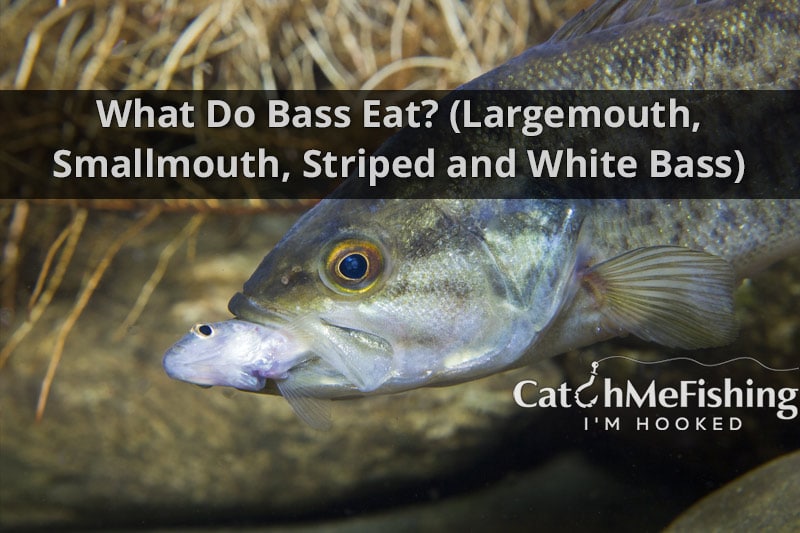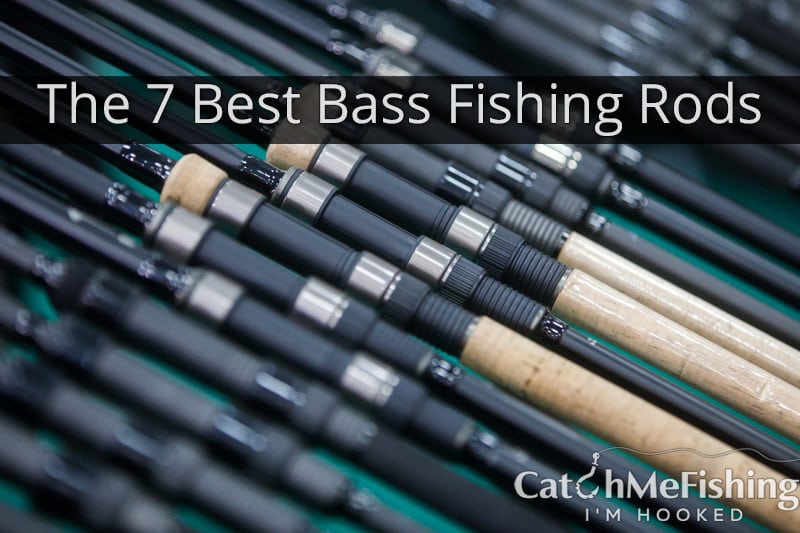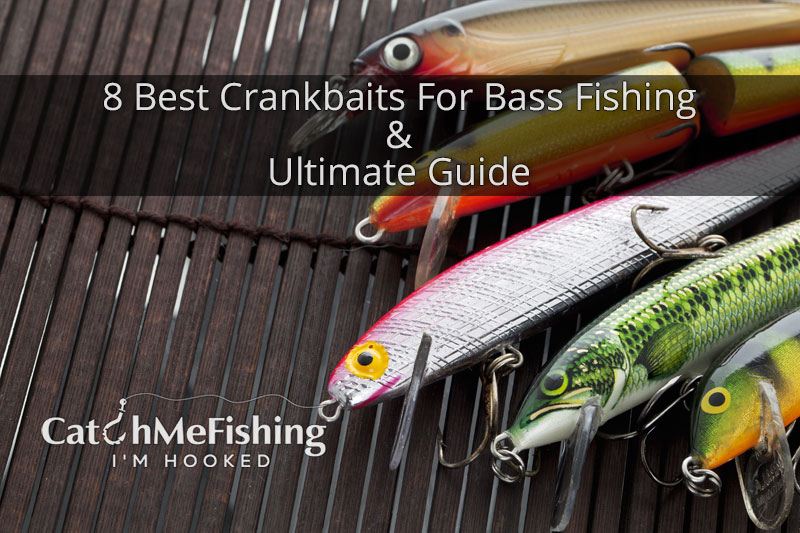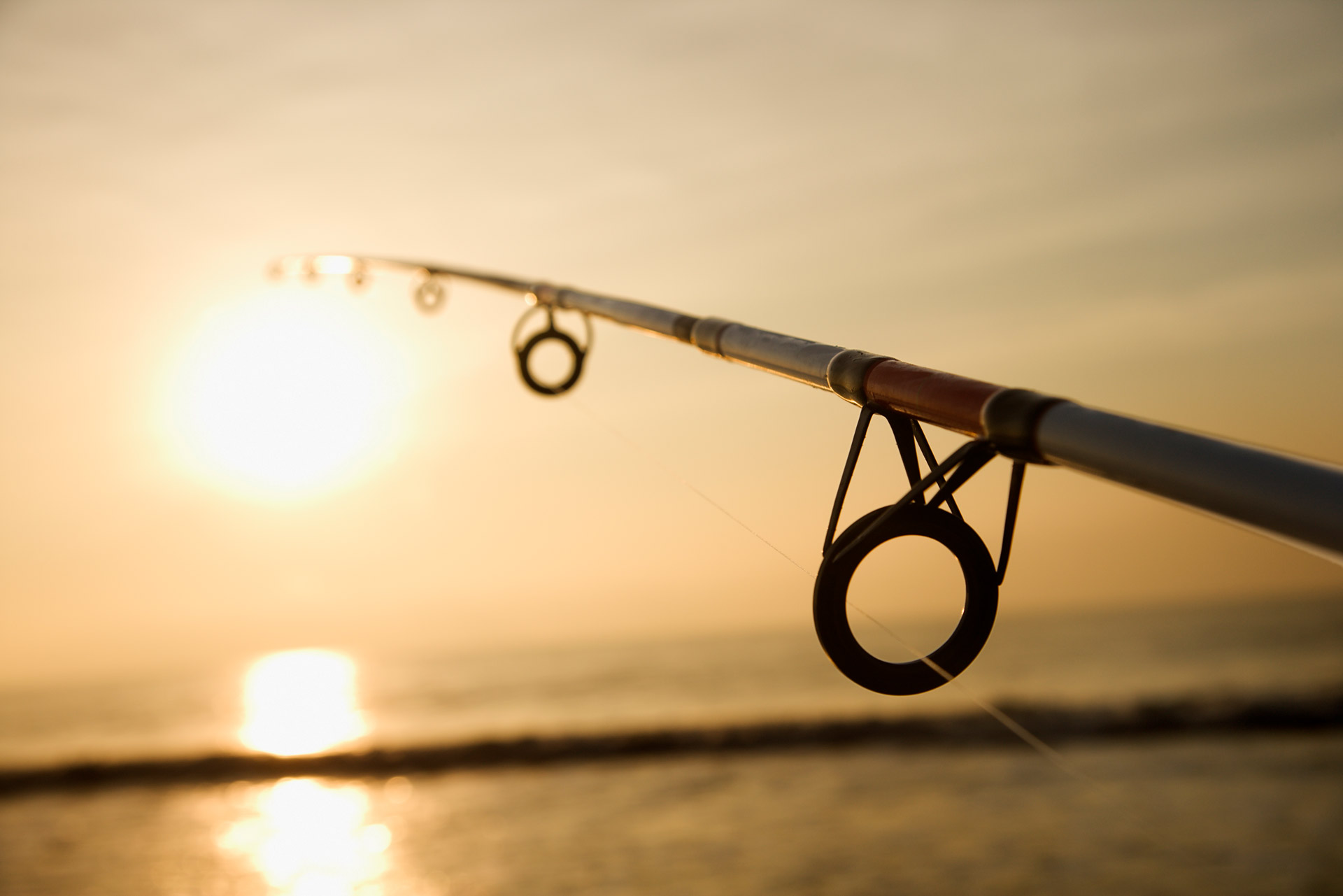How to Catch Bass in a Pond - Best Bass Pond Fishing Guide
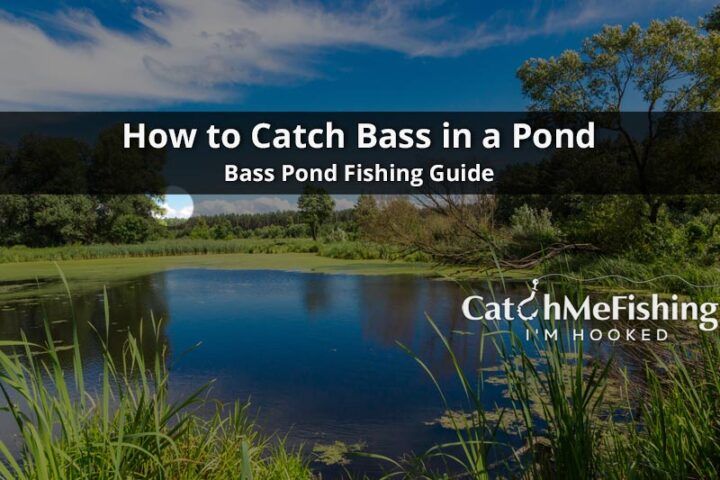
Most anglers believe that catching bass in a pond is difficult, but the truth is it's not. Once you know how to catch bass in a pond and have the right fishing tackle equipment, you will have lots of success.
It's a common misconception that bass fishing in ponds is limited. In fact, many ponds will hold large numbers of fish year-round, and some can be pretty productive as well!
From jigging to crankbaiting, there are plenty of techniques to try when pond fishing.
If you're new to fishing and want to learn how to catch bass in a pond, this blog post is for you! In it, I'll give you some great tips on what equipment you should bring with you, as well as some great strategies that will help ensure your success.
Where are Bass Ponds Located?
Bass ponds are freshwater areas of water located around North America. They can be created naturally over many years or can be man-made artificially.
Many bass ponds are off the beaten track and might be hard to find if you don't know where they are located. Ask locals and friends if they know where any bass ponds are located.
You can always check on google maps for ponds or ask down at your local fishing tackle shop. I'm sure once you get talking to a local fisherman, you will soon find where the bass ponds are.
Some ponds are on private land, so make sure you are not trespassing and have permission from the owner before landing yourself in a spot of trouble. If you find a private pond and have permission to fish it, you could have a whole pond to yourself to fish. Now that sounds fun!
What do Bass Eat in Ponds?
Bass are an invasive species in North America. They have been introduced to many ponds and lakes that didn't have them before.
In the wild, they typically feed on smaller fish. One of the best ways to tell if you have bass in a pond is by looking for these small fish around your pond or lake. Then check the area in the pond where the small fish are for bass. You should see the small fish dart and dash away as the bass try to hunt them down.
In the pond, bass are a top predator, but pond bass also eat insects. These include crickets, grasshoppers, insect larvae, worms, and dragonflies, some of the most popular foods in the insect world that pond bass love to eat.
They eat insects that fall in the water from trees by scooping them up with their mouths or fins.
How to Catch Bass in a Pond
Catching bass in a pond is one of the most challenging and rewarding experiences for any fisherman. You can use many different methods to catch bass, but it is essential to understand what kind of fish you're targeting before deciding on which method will work best for you.
How to locate bass in a pond
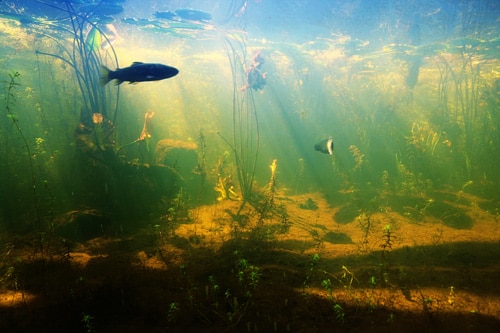
Locating your favorite bass in a pond can be challenging, especially when the water is murky. Here are some tips to help you find those elusive fish:
- Fish shallow in the morning, deeper during midday. The bass will look for cooler water in the deeper parts of the pond during the hottest temperatures of the day.
- Look for signs of life: sticks protruding from the edge of banks or weeds moving along the bottom of the pond —these could mean there is a school of hungry bass waiting nearby, ready to strike any bait within reach!
- If faced with murky conditions, cast spinnerbaits. Spinnerbaits create lots of vibration and are perfect when pond water visibility is poor due to dirty water.
- Bass are predators and will be hunting small fish in the pond. Find the smaller fish, and the bass will be nearby.
Stealthy Approach to Fishing for Bass in a Pond
When fishing on ponds, it's crucial to remain stealthy. To do that, you must silence your rods and make as least noise when casting or playing a fish.
Bass are much more frightened by sudden movements in ponds than they are on lakes. Loud noises and talking can cause the bass to go into hiding and knock them off their food, which will result in far fewer bites.
Silence is vital if you want to catch anything in ponds, so you don't scare away all of the nearby bass into hiding!
Best Pond Fishing Equipment to Use to Catch Bass
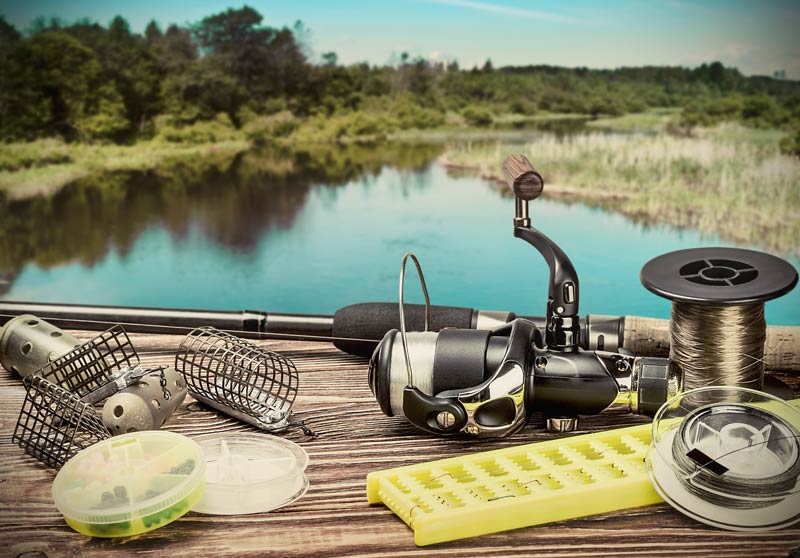
Light tackle is usually best for pond fishing as pond bass are generally skittish. Bass inhabit small quarters and can be spooked easily by the slightest noise. The most common types of light tackle are spinning gear and baitcasting gear.
Spinning gear is a good choice if you plan on using small lures or jigs. This type of equipment allows you to reel in quickly, which can be important when trying to catch fast-moving fish like bass.
Baitcasting gears have less sensitivity than spinning gears, so they're better suited for larger baits such as live minnows or nightcrawlers that will take longer to get the attention of fish in ponds.
The pond bass you typically find at your local fishery live in very tight spaces, making them especially sensitive to anything out of place or potentially threatening (e.g., sudden noises).
There's no need to worry about this with a bit of strategic planning- go easy when you fish in a pond and stay away from using hefty equipment like large hooks that could scare off these fish before you even have a chance to catch one!
Best Bass Rod for Pond Fishing
The best bass rod for a pond is typically the one that's right for you and your circumstances. There are many different types of rods to choose from, so it's crucial to think about what type of fishing you'll be doing as well as your personal preferences before making your decision.
For example, if you're going out on an adventure where space might get tight (like at a really small pond), and you are on a long hike to the pond, then using something like a telescopic pole will be convenient and help with storage issues too!
However, if you fish ponds regularly, choosing something more durable may make more sense instead since these rods can withstand much rougher handling than their telescopic counterparts can.
It would help if you also took other factors such as length and weight into consideration. Lighter fishing rods are more suited to pond fishing for bass than the more heavy rods used for lake bass fishing.
We also reviewed the best 7 bass rods which can point you in the right direction of quality rods that will be perfect for pond fishing.
The best Telescopic Rod For Pond Fishing
The Telescopic pond fishing rod I recommend for bass fishing is the
PLUSINNO Fishing Rod and Reel Combos Carbon Fiber Telescopic Fishing Rod with Reel Combo.
Telescopic Fishing Rods are perfect for various fishing situations, from large trout streams to small bass ponds. This telescopic rod is lightweight and can be assembled in seconds without any tools required!
The best part about this rod is that it's so compact that you can easily fit it into your backpack or tackle box. The perfect rod if you want to travel lightweight and fish for bass in ponds.
The best Spinning Rod For Pond Fishing
The rod spinning rod I recommend for bass fishing in ponds is the St. Croix Rods Bass X Spinning Rod. This rod is perfect for anglers who want a high-quality fishing pole without breaking the bank.
It's made with advanced carbon fiber with twice as much "stretchiness" in it than regular fibers, so they can feel every little movement and catch more fish. That's very important when bass fishing in ponds because it offers both lightweight and durability at the same time.
The best Baitcasting Rod For Pond Fishing
I Recommend the St. Croix Rods Mojo Bass Casting Rod as the best baitcasting rod for fishing in ponds.
The Mojo Bass Casting Rod is a lightweight, CNC machined graphite fishing rod with impressive strength that has been designed for bass anglers. It features an EVA foam handle and comes in three different power ratings: Medium-Light (ML), Light (L) & Extra-Heavy (EH).
I recommend the medium/fast version for pond fishing due to its durability and lightweight.
What are the Best Lures for Bass Fishing in a Pond?
The best bass lures for fishing in a pond depend on the features of the pond and what time of year you're fishing. These include jerk baits, spinnerbaits, crankbaits, worms, or jigs.
Crankbaits for Pond Fishing
Crankbaits are perfect for catching bass in ponds. Most pond bass live less than 3 feet deep, so fishing a 1 to 3-foot shallow crankbait is essential.
A crankbait lure is a very versatile fishing tool. When you want to catch bass in ponds, it's great for moving into shallow waters to catch the bass. It is a lure that has an oscillating tail and lip, which causes it to make jerking motions like a small fish. This is really attractive for pond bass.
During winter and early spring, a crankbait is probably the best option to catch bass in ponds because they'll be slightly deeper. Just make sure you pick the correct crankbait to reach the proper depth for the time of the year.
Check out our 8 Best Crankbaits For Bass Fishing – Ultimate Guide & Review for more crankbait information.
Texas Rigged Senko Worm for Pond Fishing
A Texas rig is a way to fish with a worm that's most commonly used for pond fishing. The "Texas Rig" was developed in the Lone Star State, and it consists of putting weight on the end of your line, then using an object (usually either a Senko or jig) as bait. When you're ready, just cast out into deep water near shoreline structures like fallen trees and wait until something bites!
The best time to use this technique is during warm spring months when bass inhabits shallow waters where they enjoy feeding on small baitfish.
You can also try this popular rig in the winter if it's really cold outside, but there will be less bass feeding, so make sure not to waste too much time without a bite and swap your lure if you have no success.
Jerkbait for Winter Pond Fishing
It's the time of year when bass fishing has become a popular pastime, especially in areas that see extremes such as cold winters.
The best bait for winter pond fishing is a jerkbait because it allows you to reach deep into cold clear waters and find fish without using heavy tackle. You can also try throwing out jigging spoons or flipping soft plastics under docks where bass congregate during this season. However, keep in mind that most bass are not going to be active at night in the winter, so plan your trip accordingly!
Plastic Worms for Pond fishing
I've been pond fishing for years, and I'm always looking for new ways to catch fish. One day, I was walking through a fishing tackle store and noticed they had plastic worms that looked like the real thing - so I decided to give them a try! Let me tell you. These little guys are no joke.
For about $4, you can get 100 of these plastic worms in different colors (orange, white, purple) and come with hooks attached already. If you're tired of using old bait or if your regular baits aren't working anymore, this is definitely worth giving it a shot!
It makes sense if you think about it. Bass would eat worms naturally in the wild, so this is the next best thing to getting that natural bait for your pond fishing trips.
I recommend using a small rod (generally less than 7 feet) and light line when using plastic worms. The smaller the bait, hook, rod, and line, means more bites!
Spinnerbait Fishing in Ponds
Spinnerbaits are ideal for catching bass in shallow and deep ponds. The best color is silver or gold, and the most popular sizes are between #14 & 18.
The key to successful spinnerbait fishing in deep ponds is making a long cast with lots of line out on your reel. Once your spinnerbait hits the water, use short jerks of the rod tip to set it into motion. The bass will react by attacking from below!
When the weather is warm in the spring, try light spinnerbaits. These will catch you lots of bass, and it's my go-to bait to use if the pond water is on the murky side. The vibrations in the dirty pond water will attract the bass.
What is the Best Natural Bait for Bass in a Pond?
Although lures are fantastic for catching bass in ponds, worms and crickets are excellent bait for bass in a pond. Live baits can also be an excellent bait for catching bass in a pond if you are happy to use live bait.
The nightcrawler is one of the best baits for catching trophy-sized bass. It's been the top bait choice of many pro anglers.
Because nightcrawlers are a natural bait, the bass will be very familiar with it. So it is an excellent all-round bait and my go-to if I'm at a new pond, and I'm not sure what bait will perform the best.
Hook the worm through the head or the tail so that it allows it to wiggle naturally still. The Pond bass love them!
Remember: Bass are opportunistic predators, so they will eat what's available to them. If your pond has carp in it, then go ahead and bring along some worms or crickets- this bait choice is perfect for catching both types of fish!
When is the Best Time To Fish in Ponds
The best time to fish for bass in ponds is in spring when they are spawning. Try fishing early morning or later in the evening during that time of year when the weather is not too warm.
The male bass are very defensive of the fish eggs in the spring during the spawning season and will attack most things that move nearby. This gives you an excellent opportunity to catch plenty of fish!
Before noon most bass will be sitting on the pond's floor waiting for food in shallow water. Bass often spawn earlier than other species like crappie and bluegill, so the best strategy may be to get out there before everyone else does!
Bass also tend to stay active longer into fall because their metabolism slows down as it gets colder outside- this means you can still catch them even if it's cold outside (although bait preferences do change a bit).
Also see The Best Time to Fish for Bass (Including Seasons)
How long do bass live for in ponds?
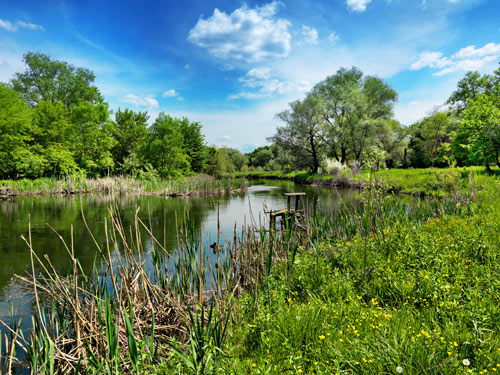
Larger bass tend to live for more than five years in ponds, which is about the average. If they can escape predators, fisherman and find safe shelter, their life expectancy can be much longer, as much as nine or even ten years old.
This all depends on certain environmental factors and the bass size. Smaller bass tend to have shorter lives because they are weaker against predators. Still, larger fish will survive longer due to their strength and ability to defend themselves from other animals that want food.
Final Thoughts
Bass fishing in ponds is a great day out for both you and the family. Remember to use fishing gear that's light and try to be as quiet/stealthy as possible. Look for signs in the pond where the bass will be hiding, paying close attention to the smaller fish. Bass love to hunt after them.
I wish you the best of luck in your bass fishing adventure and tight lines!


